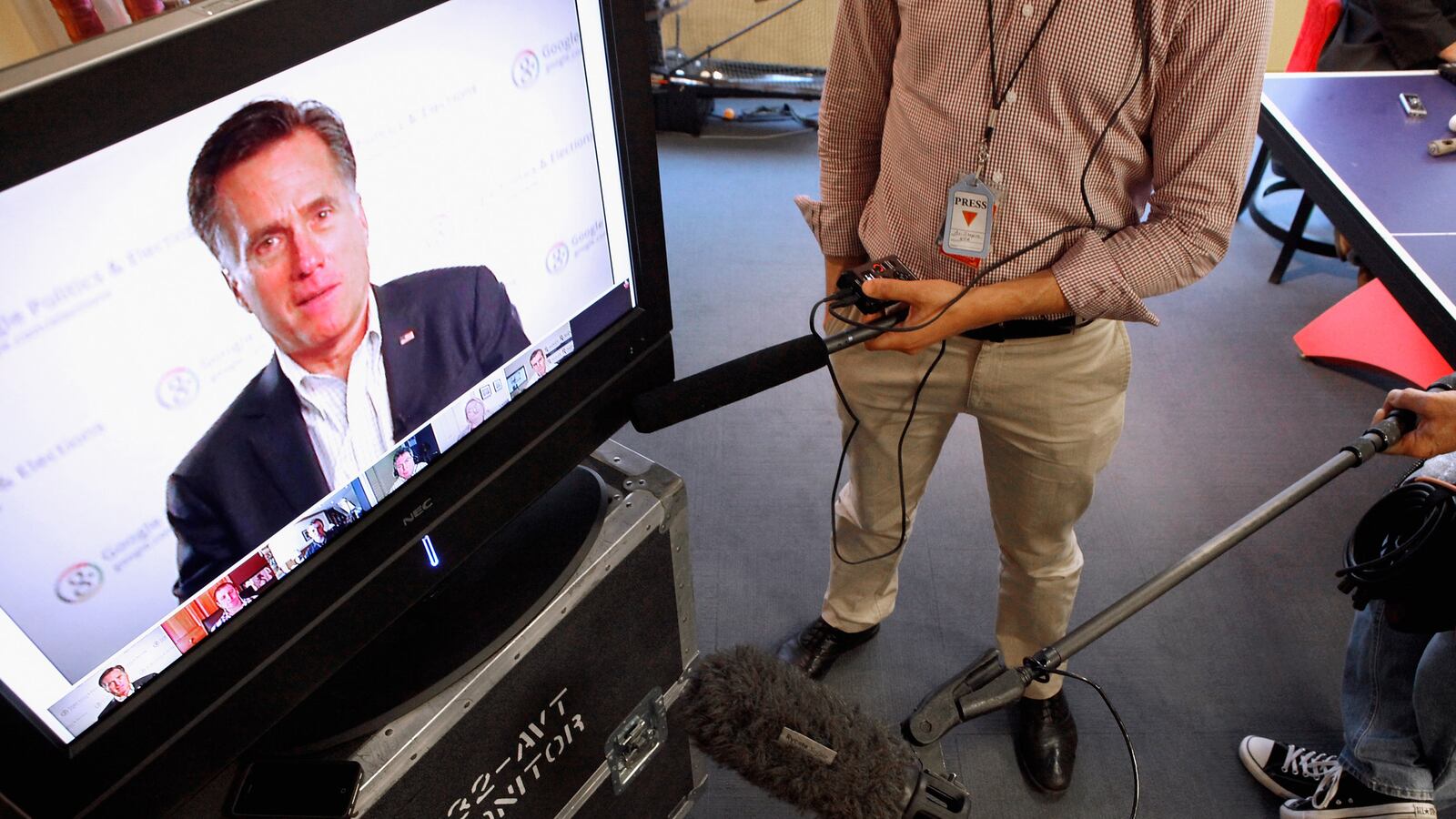The biggest loser of last week’s elections may have been the Republican Party’s image of the American family. Al Mohler, president of Southern Baptist Theological Seminary, blamed the Republican loss on a dramatic change in our country’s “moral landscape.” He’s right, but this isn’t new: the GOP vision of America, which includes patriarchal churchgoing families with sexually abstinent teenagers who have no use for birth control hasn’t been a reality since the 1950s.

So what happened? As it turns out, one of the most influential forces in changing Americans’ definition of family can be found in the homes of liberals and conservatives alike: their televisions. Slowly over time, the family sitcoms that Americans have been watching for decades effectively transformed what was once the culturally reinforced American ideal family into a relic of the not-so-distant past.
The sitcoms from the 1980s and 90s were on the leading edge of this shift. What those cheesy shows with nontraditional family arrangements like Full House or Who’s the Boss were doing back then was preparing the American public for a radical redefinition of family in a safe—and comical—environment.
With their hokey humor and easily solved crises, those shows led straight into the era of Ellen and Will & Grace. Though they weren’t without controversy, these situation comedies were successful because they were the next step in a much longer progression. The coming-out episode of Ellen, which aired in April of 1997, was one of the show’s highest rated, even though the controversy that it created probably led to the show’s eventual cancellation. But just five years later, DeGeneres returned to the national spotlight—and even greater fame—as the host of The Ellen DeGeneres Show. Today, the controversy surrounding her sexual orientation is almost difficult to imagine.
But the shift in the moral landscape goes back much further. Television in the 1950s portrayed a stringent vision of a traditional family—think Leave it to Beaver, I Love Lucy, or Father Knows Best—shows that one can easily imagine playing on repeat in the Romney living room. But it wasn’t long before new sitcoms appeared and began to show the cracks and break the model. In the 1960s, Bewitched, The Addams Family, and The Munsters maintained the traditional family model, but used nontraditional characters, a witch and an assortment of monsters, to change the formula. In shows like Family Affair, The Andy Griffith Show, and My Three Sons, single parents—because of death, not divorce—appeared for the first time.
In many ways, the 1970s revealed just how influential the primetime sitcom could be. In a recent review in The New York Times of the DVD box set of the popular 70s sitcom All in the Family, Neil Genzlinger noted that, “before All in the Family sitcoms were largely something to tune in for escape and reassurance. But as of Jan. 12, 1971, when All in the Family had its premiere on CBS as a midseason replacement, comedies suddenly had permission to be relevant.”
It took a while for other shows to catch up to the relevance factor of All in the Family, but 70s sitcoms did continue to shake up the definition of family. The Brady Bunch, and, to a certain extent Happy Days, patched together families out of individuals or groups who were not related. Single parents became more common: Eight is Enough featured a widower with eight kids and One Day at a Time portrayed a divorced mother and her teenage daughters, both during the era when no-fault divorce laws were sweeping the nation. The 70s also brought a number of shows featuring African-American families, which, for many suburban white Americans who had minimal exposure to other races, would have seemed “non-traditional.”
And in the 1980s and 90s, popular culture began to explore dysfunction in families, as in The Simpsons and Married With Children, both objects of consternation from the GOP at the time. And of course many sitcoms portrayed completely new ways of being a family. That’s what Full House was all about, and as we watched that show we saw a lot that we didn’t recognize in our own families—unless, of course, you grew up in a huge house in San Francisco and were raised by three straight, single men—which was subconsciously stretching our definition of what it means to be a family. But there was also a lot that we did recognize. And it was the combination of these two, the familiar and the new, that prepared us to accept the coming changes.
Today, of course, we need only look at the popular sitcom Modern Family for an indication of just how much the idea of family has changed. That one family, which includes divorcées, immigrants, adopted children, gay couples, and strong women leading their households manages to encapsulate all the ways in which the definition of family has shifted and yet, remarkably, their arrangement is not unbelievable, nor does it stray too far from “traditional” family values. But what Modern Family doesn’t have is anybody who looks anything like a mainstream Republican: it’s difficult to imagine a character resembling Todd Akin, Rick Santorum, or even Mitt Romney appearing as anything other than a bumbling curiosity from an earlier age.
By showing what works for other—albeit, fictional—families, and by not heavy-handedly forcing values onto viewers, these shows both reflect the shift in Americans’ morals, while simultaneously pushing toward greater openness and acceptance of alternative family arrangements. Rather than downplay the role of family as its definition evolves, popular culture has shown us that family is as important as ever—so important, in fact, that people for whom the status of “family” has been denied will do anything to be included within it. Shows like Modern Family, Parenthood, and Glee don’t cast aside traditional family values so much as expand them to include more people, a move that couldn’t be more at odds with the Republican Party’s alarmist, exclusionary rhetoric.
And that’s exactly what this most recent election affirmed. For decades Americans have been welcoming nontraditional families into their homes, laughing along with their exploits, falling in love with them, and learning to see them as equals. So yes, the moral landscape has changed, and in the process Americans have become more open and accepting of differences, understanding that successful families come in all shapes and sizes. The GOP’s overwhelming defeat on social issues was inevitable: no amount of campaigning or fundraising can make voters fear the “redefinition of the family” when they know that families have been in various states of redefinition for decades—both in real life and on TV.





